travel
China Elevator Stories
In the Footsteps of Confucius: A Journey to Qufu, Shandong Province (China Travel)
I visit Qufu, the hometown of Confucius, in April 2025.
28/04/2025

Ruth Silbermayr
Author
This video shows Confucius Forest in Qufu.
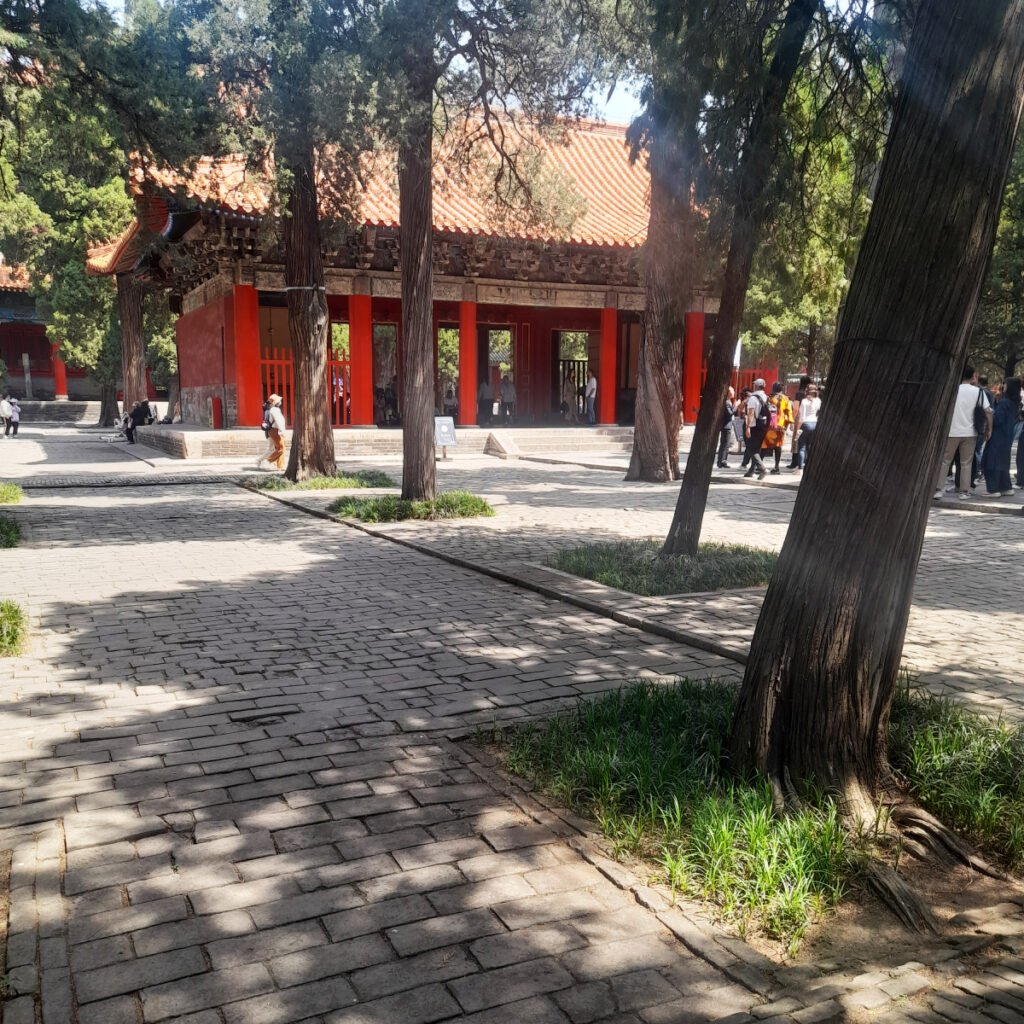
It is April 2025. I find myself boarding a high-speed train bound for Qufu, a city near Tai’an in Shandong Province. Qufu is famed as the birthplace of Confucius, China’s most revered philosopher and scholar, and for its “Three Confucian Sites (三孔)”—the Confucius Temple (孔庙), the Kong Family Mansion(孔府), and the Confucian Forest (孔林)—a UNESCO World Heritage Site.
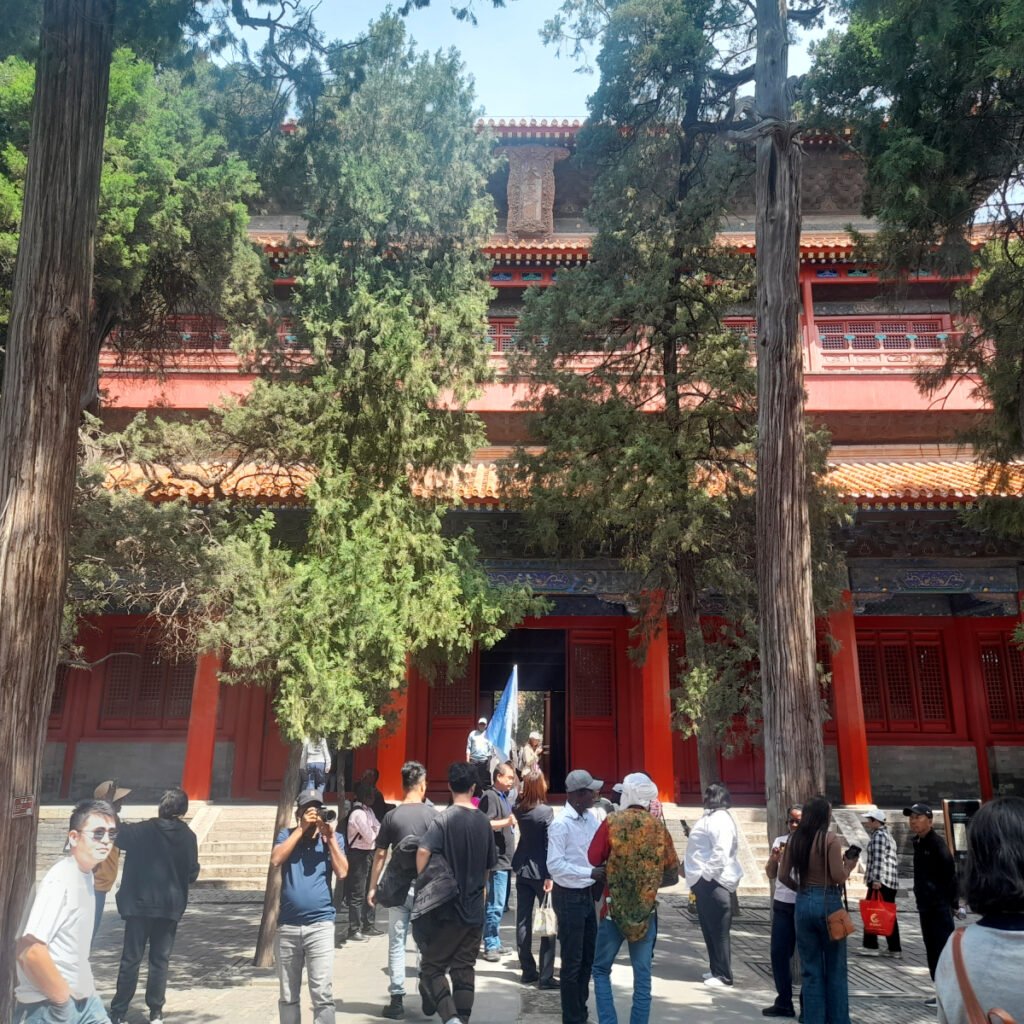
The journey takes only seventeen minutes. Traveling aboard China’s fast trains never ceases to amaze me; they are a true marvel of engineering. After enduring the slow trains of past years—some journeys lasting nearly 57 hours across vast stretches of the country—the speed, smoothness, and brilliance of these trains feel amazing.

I am not exactly an engineering enthusiast, but if you have ever rattled along a track anywhere else in the world, you would understand my appreciation. The Fuxinghao bullet trains (复兴号) are a masterpiece—and I say this as a highly sensitive person (an HSP), attuned not only to sound but to light and colors. I am convinced an HSP must have been designing them; they offer a kind of comfort and peace rarely found in public transport. Compared to them, the older Hexiehao trains (和谐号), feel like they weren’t designed by an HSP—or maybe that’s just my imagination. (Half-joking. Maybe.)

I arrive at Qufu East Station (曲阜东) and take a cab to the Confucius Temple.
Though Tai’an and Qufu are close in distance, the landscapes seem to change. Rows of slender poplars line the roads, and something about the light, the dusty streets, the tangled greenery, reminds me strangely of Italy. Qufu is small, lively, and a little chaotic—a sharp contrast to Tai’an’s clean and orderly streets.

The Confucius Temple is a surprise. I had set no expectations, yet the architecture, the many small pavilions, and the carved stone figures draw me in. There are leafy courtyards, clusters of trees, and the atmosphere carries an old, scholarly calm. The entire site feels less like a religious place and more like a university campus built many centuries ago, imbued with a reverence for knowledge.
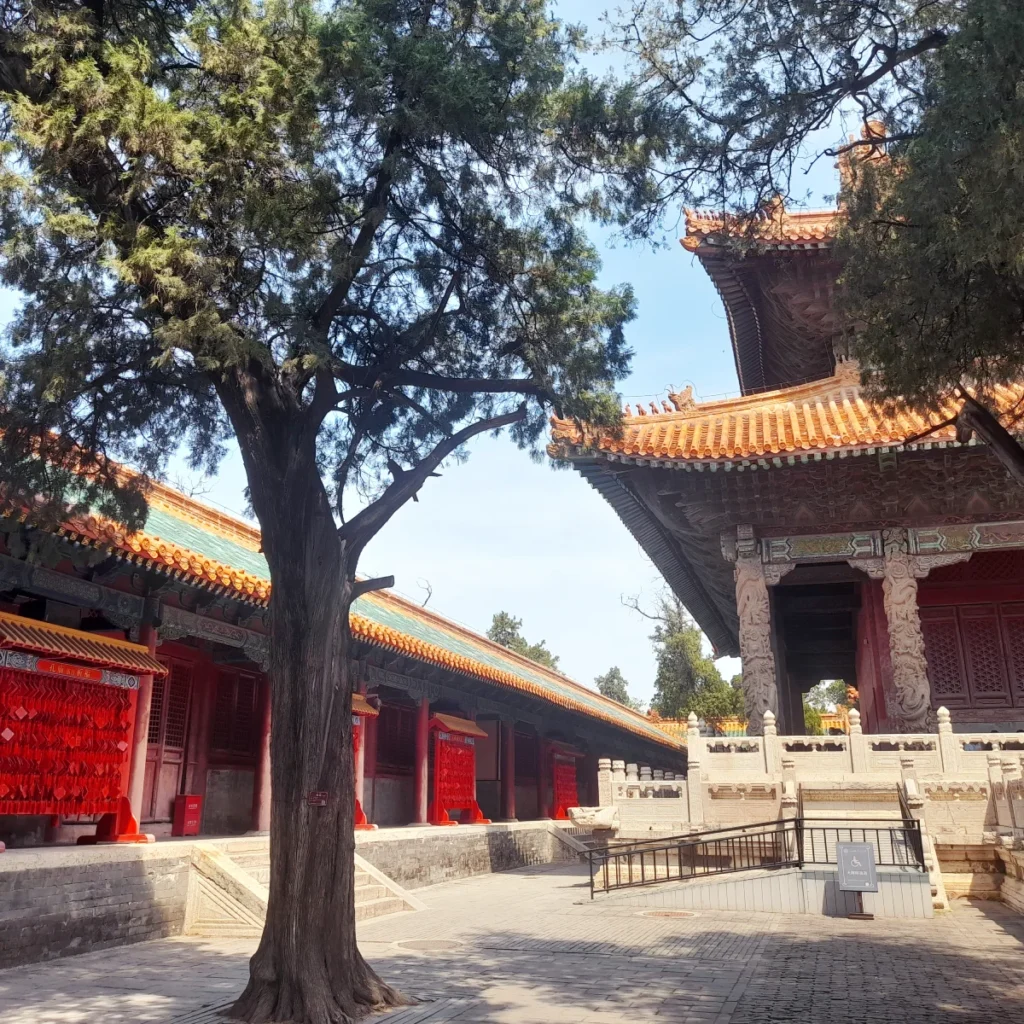
From the Temple, I walk to the Kong Family Mansion. It is close by, just beyond the exit. Here, many of the buildings seem newer—perhaps rebuilt—but there are still corners where the past feels tangible. If time is short, I would recommend prioritizing the Confucius Temple and the Confucian Forest. The Mansion offers a pleasant stroll, but it does not possess the same gravitas. All three sites can easily be visited within four hours. Tickets are valid for two days, but for me, a single afternoon seems enough if you aren’t particularly slow.
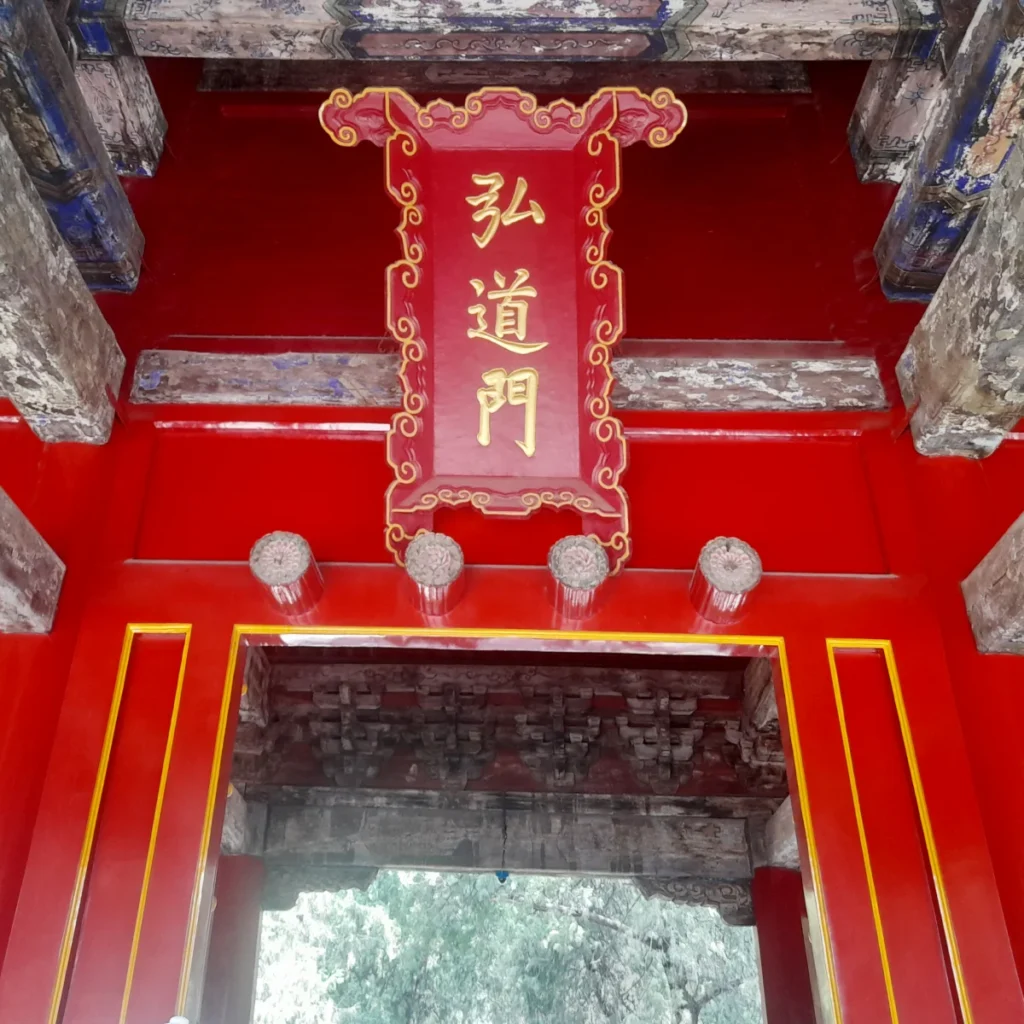
From the Mansion, I hire a one-person tuk-tuk and ride to the Confucian Forest.
The Forest is vast—ancient, sprawling, alive with silence.

Here lie the tombs of Confucius’s descendants, scattered among tall trees. Kong is the Chinese surname of Confucius, carried on through generations.
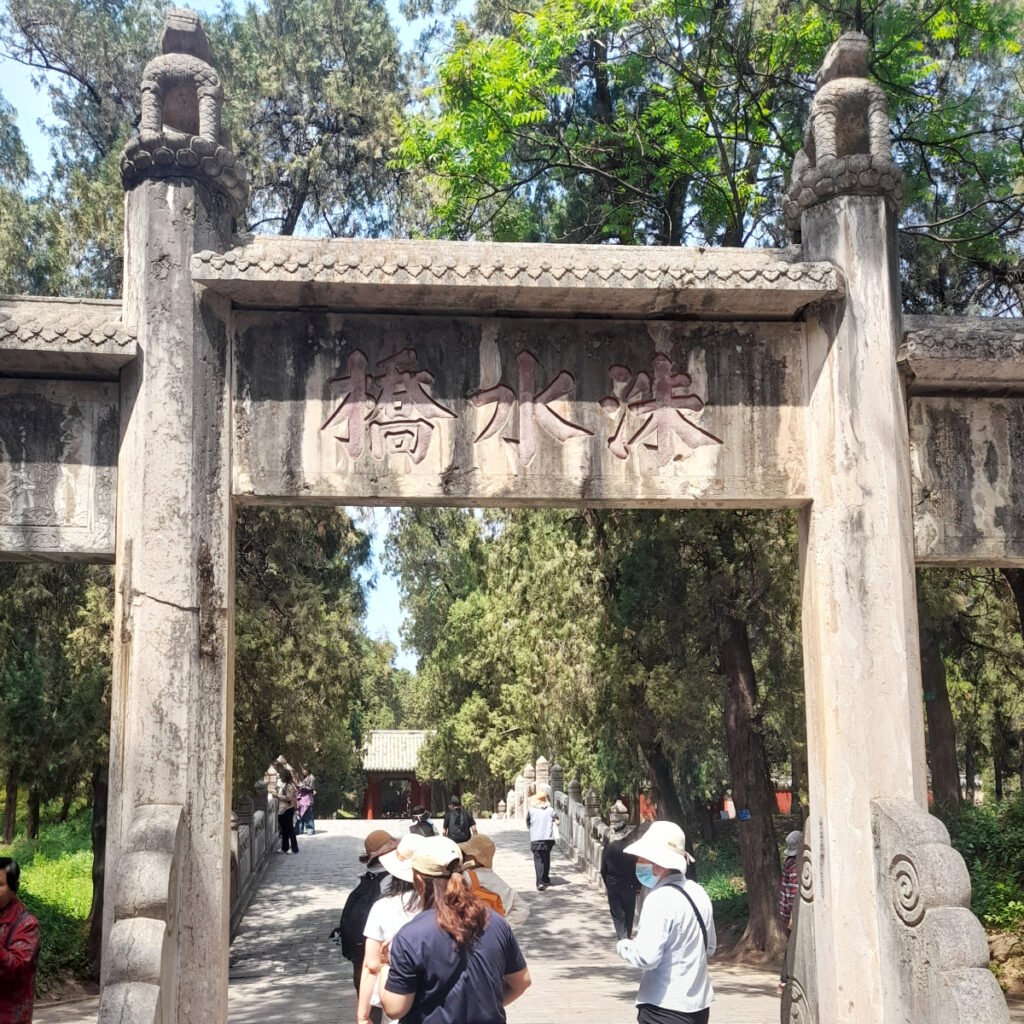
It is a beautiful, peaceful final resting place—the most serene graveyard I have ever visited. There is something profoundly touching about how the graves are placed with care throughout the living woods, allowing the dead to rest among growing, whispering trees. The design feels intentional, almost sacred, and shows that the living treated the dead with due respect.
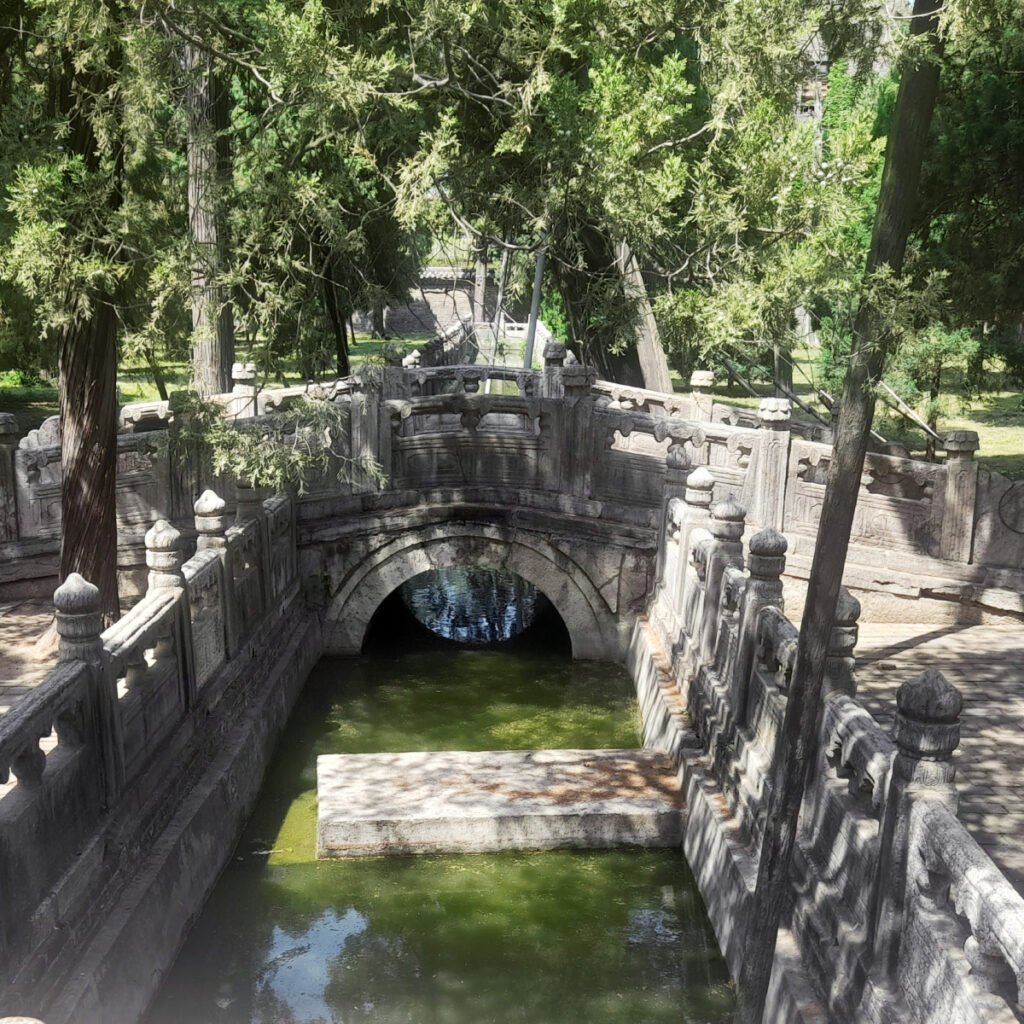
Afterward, I wander the town. Many shops around the historical sites are shuttered. It seems hard to make a living here through tourism alone. I find no cafés or teahouses open where I might sit and watch the world drift by, so I settle for a simple meal at a small restaurant. Later, I return to the station and change my ticket for an earlier train. I wait for two quiet hours in the waiting hall, and then board the sleek silver train back to Tai’an.

The Three Confucian Sites left a lasting impression on me. The Confucian Forest was the site that left the deepest impression, but the other sites, particularly the Confucius Temple, were magnificent as well.
Have you ever been to Qufu?